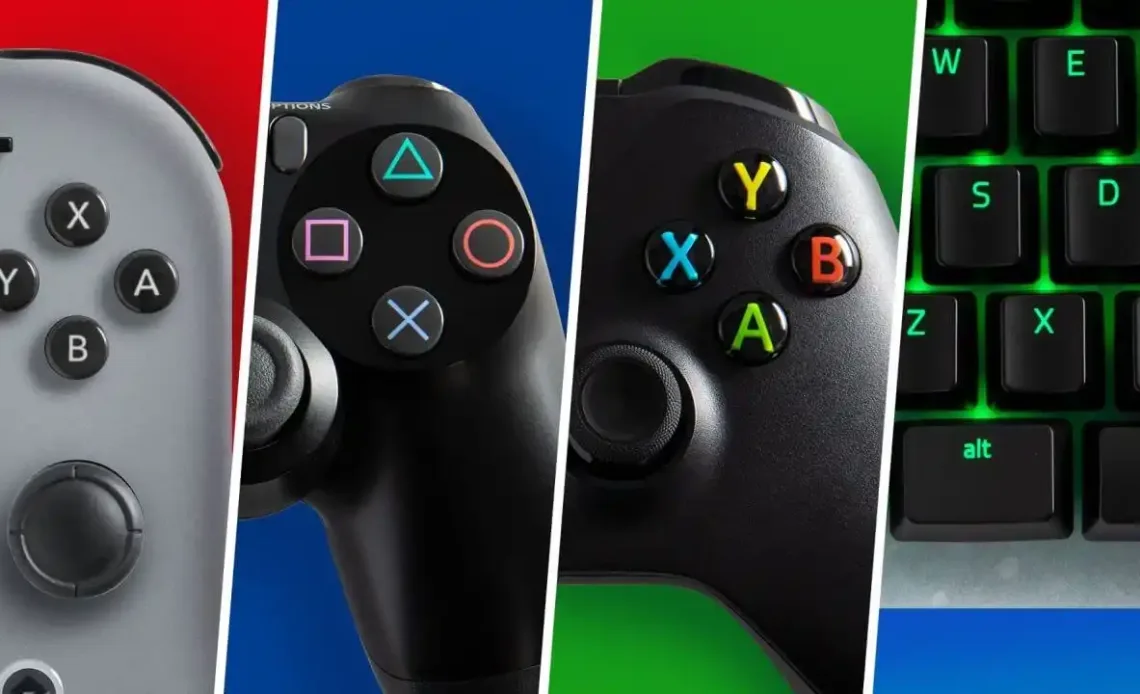
Less than a decade ago, to play with your friends you would all have to be playing within the same ecosystem. That meant you were a part of the PlayStation, Xbox or PC gaming communities—especially if you were gaming in high school. But that’s not the case anymore. Many modern games have embraced cross-play gaming, allowing gamers to play with those using other devices and even generations of hardware. But is this a short term-trend or a new standard? Let’s take a closer look.
What is Cross-play Gaming?
If a game is cross-play, it means that you can play online with players on a different type of device. That means if you are playing on an Xbox device, you would be able to play online with players on, say, PC, Xbox or Nintendo Switch—or even all three!
For example, players of Rainbow Six Siege can use cross-play to play in either a console pool (PlayStation and Xbox) or PC pool (PC and Amazon Luna). Speaking of Siege, grab some r6 credits to upgrade your time in the game.
Cross-play games must be online and multiplayer.
And don’t confuse cross-play games with games available on different platforms—even though it sounds like the same thing, cross-play gaming refers specifically to online multiplayer.
How does Cross-play Work?
While the technical of cross-play is pretty complex, the underlying concept is very simple. Cross-play works by allowing players on different platforms (device types) to join the same game servers. For example, this means that instead of Xbox and PlayStation servers being separate entities, they will be combined.
However, this relies on game console creators to support this feature. There are also a number of other challenges; but we’ll get back to those.
The Rise of Cross-play Gaming
Cross-play has actually been around for a long time. Since the Sega Dreamcast and PlayStation 2, a few cross-play games have existed across various platforms. However, it has never been as popular as it has become in the past 10 years. Now we see cross-play feature in games across the board; from Minecraft and Roblox to Apex Legends and Fortnite to Among Us. Thus, it’s clear that cross-play has become a very popular and desired feature.
This rise in popularity comes from a variety of factors: including the growth of online free to play games, cloud gaming platforms and the rise of mobile gaming which have all blurred the boundaries of the traditional gaming market—which originally relied on console and physical game sales. It could also be argued that the mainstreaming of gaming culture has played a role in this, with more and more gamers wanting to connect with their friends across platforms.
Increasing competition could also be seen as one of the bigger reasons why developers have begun to introduce cross-play. With more games on the market, cross-play allows for player pools to remain large across all platforms—so it still makes sense to play Fortnite on a Nintendo Switch even though many more players play on Xbox, PlayStation or PC.
Cross-play has been a great addition to modern gaming culture thanks to its inclusivity, increase social connection and its boosting of player pools. However, it’s not without its issues.
Challenges and Concerns
Cross-platform gaming doesn’t happen on its own. Developers and console manufacturers have to work hard to ensure that the games both become accessible and remain equally enjoyable across platforms.
One of the greatest challenges is balancing gameplay across platforms, and removing any advantages. For example, PC players with keyboard and mouse almost always have an advantage in FPS games when facing players using controllers. Developers often solve this issue by creating input based matchmaking; so only players using the same input system can play together.
But there can also be more subtle issues; like different frame rates, stability of online systems and more. Fortunately developers work hard to minimise or totally remove these.
On another note, some cross platform games also struggle to actually connect friends across different ecosystems. But this is kind of understandable. Players have different usernames for PlayStation, Xbox and PC—and those usernames are all attached to the specific systems created by their hosts. So finding a friend on PlayStation while on an Xbox isn’t as simple as finding someone on the same platform. This means that there can be additional friction for players to find their friends in cross-play games—especially as there still isn’t a standardised method of doing it.
Cheating is another big concern, though. Especially as PC gamers have many more tools available to cheat in games when compared to console players. That’s why you’ll always see robust anti-cheat services being used in multiplayer games on PC.
While these additional development tasks can be easily overcome by large studios, the additional financial overheads mean that indie developers often struggle to implement balanced, fair and equal cross-play. Thus, most indie games still remain playable on single platforms.
The Future is Cross-Play
Despite its challenges and extra work that it puts on developers, cross-play is a feature which gamers love. It allows you to connect with your friends more easily, reduces the isolation of buying a particular gaming system.
But cross-play might also bring some new revolutions in gaming. Esports, for example, could start to cater to cross play. Meaning that players could choose their preferred device, input system and even play with teammates on different systems. This could help to shake up the competitive gaming scene in a way that we haven’t seen for years.
While there are some hurdles to overcome, especially when it comes to accessibility of tools for indie developers, the benefits of a connected gaming community mean that cross-play is likely to become even more commonplace in the years to come. As technology continues to advance and developers continue to find more effective solutions for the issues of cross-play, the feature will only become more and more popular.
Thanks to its many benefits, cross-play is clearly here to stay.

